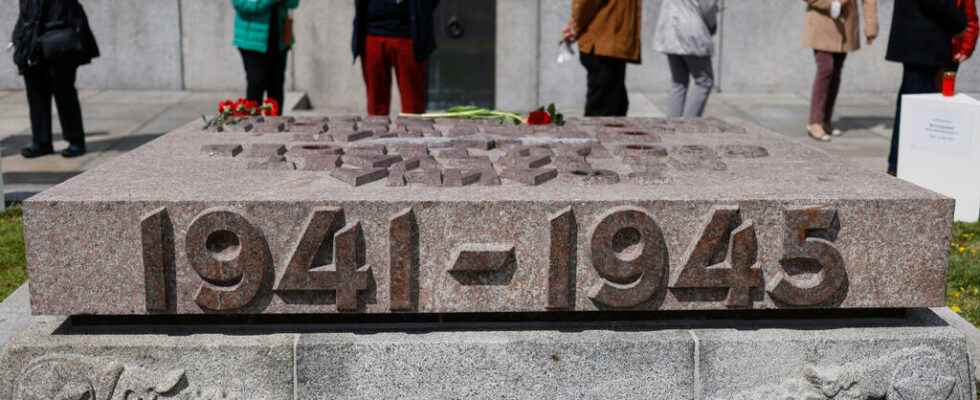More than fifty demonstrations are announced, in Berlin alone, on the occasion of the commemoration of the end of the Second World War. Most are organized by pro-Putin Russian-speaking activists. In the former GDR, each city, each village has its memorial to the glory of the Soviets, victors over Nazi Germany. The police, who fear provocations, are on their toes.
With our correspondent in Berlin, Nathalie Versieux
Major demonstrations are expected in Berlin on May 8 and 9. Since the fall of the Wall, the commemorations around the end of the Great Patriotic War, as the conflict is called in Russia, hardly mobilized more than a few veterans. But things changed with the invasion of Ukraine. 3.5 million Russian speakers live in the Federal Republic, a community divided over war. In the early days of the conflict, at the beginning of March, there were more or less spontaneous demonstrations, convoys of vehicles displaying the Russian flag and the “ Z » in support of Putin’s troops marched in Berlin, Hanover or Frankfurt, causing outrage in the country.
An enormous car parade of cars with mostly Russian flags in Berlin, #Germany, today. Reportedly, the parade in support of Russia gathered 5000 cars.
They can’t complain about the media blackout in Germany. They have access to information and can see what Russians did in Bucha. pic.twitter.com/20Oco5p3RB
— Hanna Liubakova (@HannaLiubakova) April 3, 2022
Flags, songs and uniforms prohibited for these commemorations
No question of seeing such scenes today and tomorrow in the German streets. 1,500 police officers from all over Germany are mobilized in Berlin alone, where demonstrators will not be allowed to display Russian or Ukrainian flags, sing military songs or wear uniforms.
If the Ukrainian conflict polarizes Germany so much, it is due to the importance of the Russian community in Germany, and to its composition. The Russians in Germany mostly arrived at the fall of the Wall. They belong to those German minorities from the Soviet Union, deported to the east and persecuted by Stalin after the war, who arrived in Germany by the millions at the end of communism.
Not always well integrated, permeable to Russian propaganda, many of them venerate Vladimir Putin. Russians in Germany are overrepresented in the ranks of the far-right AfD party or the anti-vaxs. On Saturday, pro-Putin Russian bikers were seen near the towering Soviet memorials in Berlin. Groups are organized on the Facebook or Telegram networks. Both on the pro-Russian side and on the pro-Ukrainian side.
►Also read: The diplomatic quarrel between Berlin and kyiv seems to have been overcome
